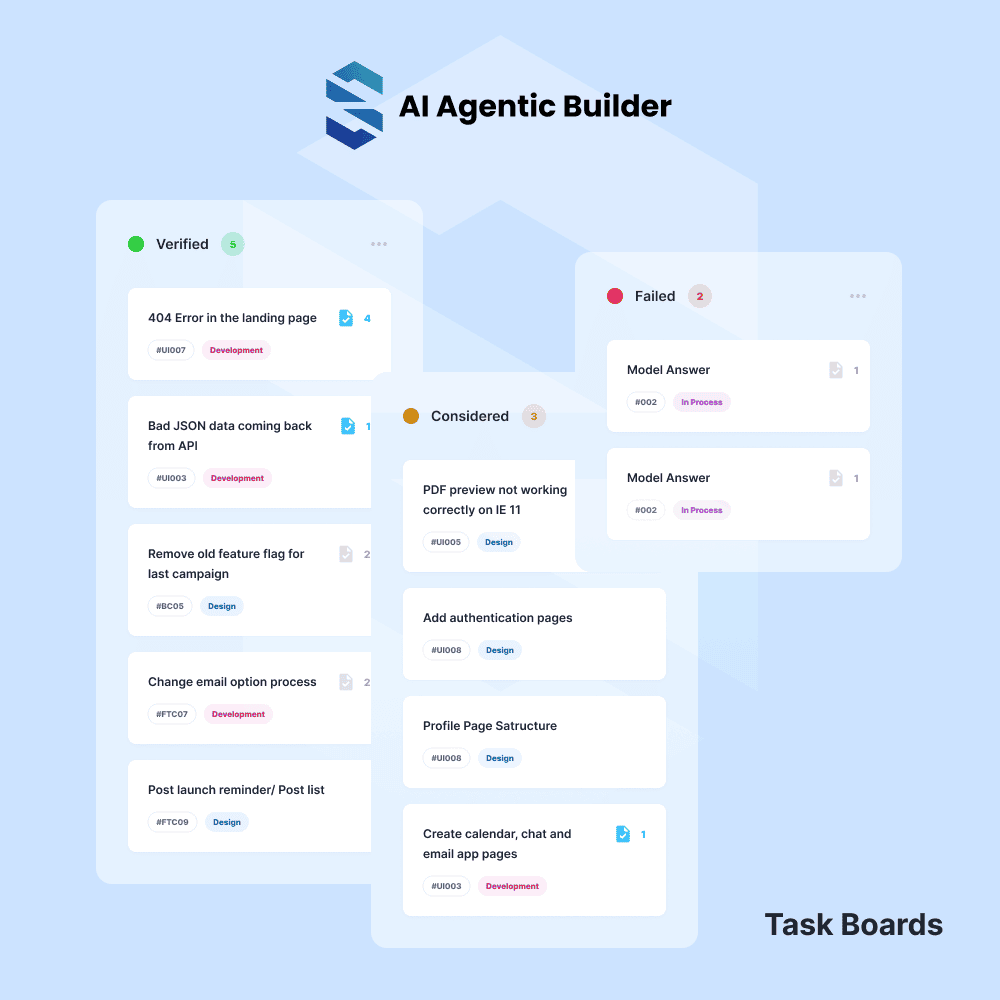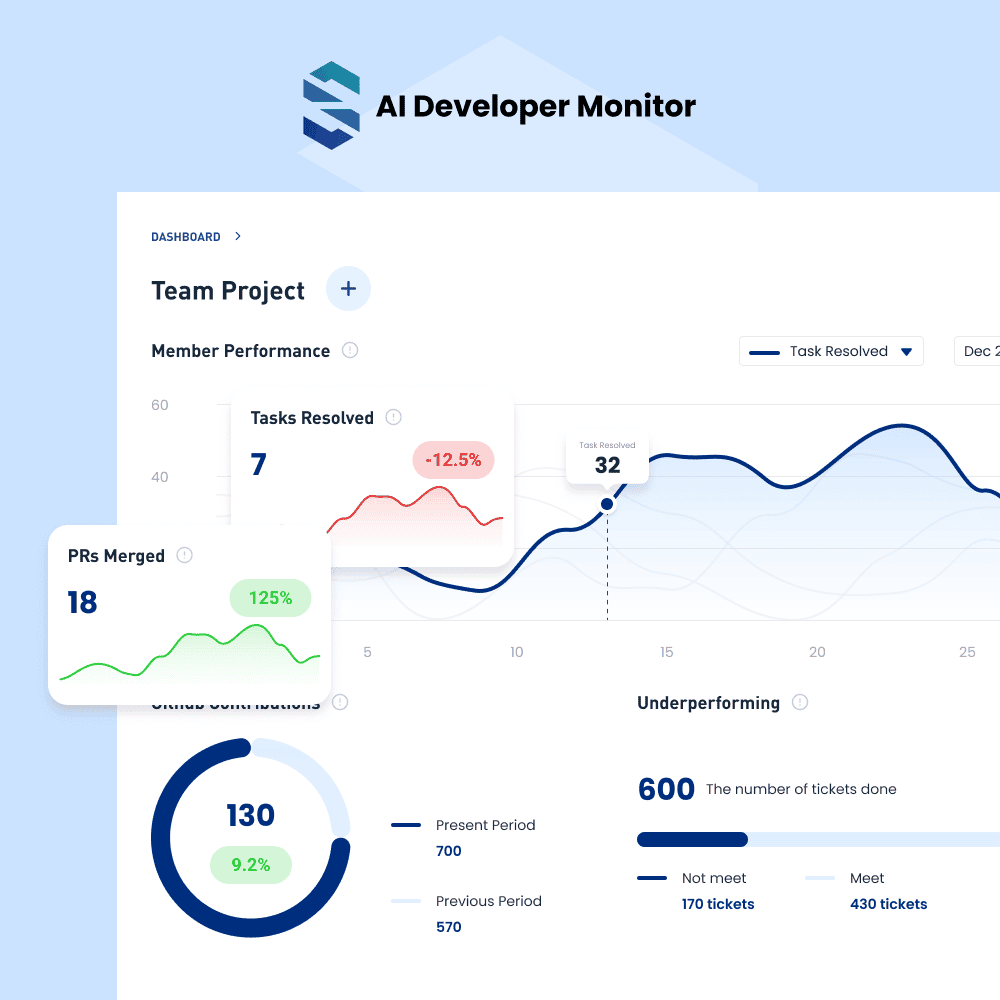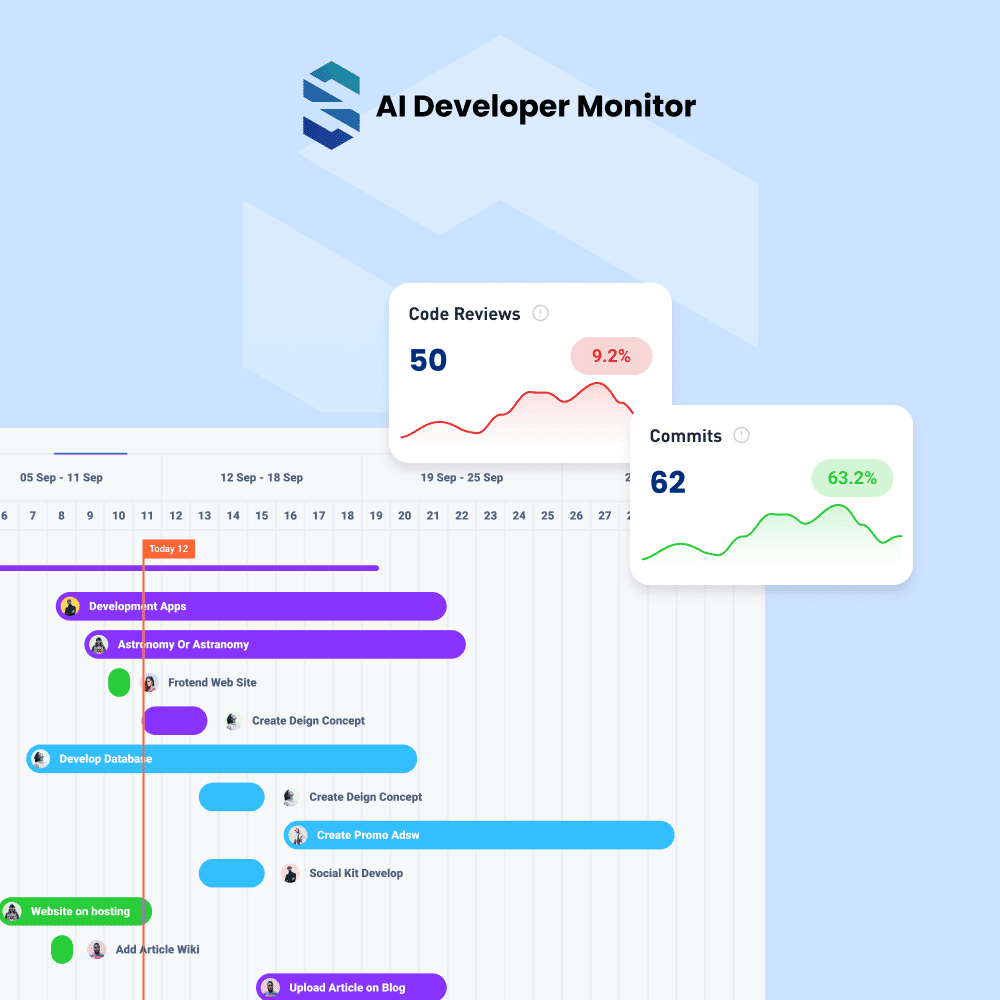
Build with Solazu AI-assisted Development Workflow
Trusted by fast-scaling organizations around the globe
AI Agentic Builder

Our AI Agentic Builder is an engineer's go-to-assistant. It helps engineers:
- Understand Legacy Systems Quickly: Analyze large volumes of source code in legacy systems with ease and accuracy.
- Ask the Right Questions: Generate intelligent suggestions to ensure engineers fully grasp requirements and critical use cases.
- Streamline Code Review and Execution: Automatically generate consistent, high-quality code drafts for engineers to review, ensuring faster delivery and fewer errors.

Reduce Development Time and Costs by Over 40%
Leverage AI to accelerate coding workflows, streamline project timelines, and reduce costs without compromising quality.
AI Developer Monitor

Our AI Developer Monitor enables teams to:
- Monitor individual and team performance in real-time: Track productivity with up-to-the-minute accuracy.
- Provide detailed insights into development efficiency: Identify inefficiencies and uncover improvement opportunities.
- Optimize workflows with data-driven intelligence: Enhance collaboration and accelerate project delivery.

Help Your Team Focus on What Matters
Identify opportunities to leverage AI for automating repetitive tasks, enabling team members to dedicate their time and energy to high-impact work.
AI Team Translator

Our AI Team Translator enables:
- Instant speech-to-speech translation: Seamlessly convert spoken language into text and back into speech.
- Real-time language conversion: Break down language barriers for faster and more efficient global collaboration.
- Effortless communication across linguistic boundaries: Ensure smooth communication regardless of linguistic or cultural differences.

Enhance Customer Experience and Retention
Deliver seamless communication that increases customer satisfaction and happiness - no matter the language or border.
WHY CHOOSE US?
ARE YOU EXPERIENCING ANY OF THESE? TALK TO US.
01
Spending too much time on repetitive tasks?
Tedious, time-consuming tasks that distract you from growing your business
02
Dealing with costly human errors?
Avoidable mistakes that waste time, drain resources, and erode customer trust.
03
Struggling to manage an ever-increasing volume of data?
Overwhelming amounts of information that make it difficult to uncover actionable insights.
OUR SERVICES
Data Solutions
Data insights help businesses make smarter decisions, solve problems faster, and unlock new opportunities.
AI Solutions
Unlock the power of generative AI and what it can do for your business, employees and customers with Solazu.
Business Optimization Solutions
Unlock the potential of streamlined operations to drive cost savings and business efficiency.
DRIVING INOVATION ACROSS INDUSTRIES
Technology
Empowering technology companies to scale platforms, improve operational efficiency, and deliver cutting-edge products. From AI integration to cloud solutions, we drive innovation and faster growth.
Retail & Consumer
Transforming retail with omnichannel experiences, optimized operations, and scalable IT systems. We help you stay ahead of customer demands and unlock new growth opportunities.
Financial Services
Revolutionizing banks and fintech firms with secure data solutions, predictive analytics, and digital transformation strategies. Elevate customer experiences while streamlining operations.
Healthcare & Life Sciences
Driving innovation in healthcare with advanced technology solutions to improve patient care, streamline workflows, and enhance operational efficiency.
Environmental & Sustainability
Delivering solutions for companies focused on environmental health, safety, and sustainability. From data management to compliance systems, we help organizations achieve a greener, smarter future.
OUR CUSTOMER
次のステップへよりスマートなソリューションへ
貴社の業務効率化、コスト削減、持続的な成長を実現する戦略をご提案します。今すぐ無料相談を予約し、Solazuの専門家と最適なソリューションを見つけましょう!
